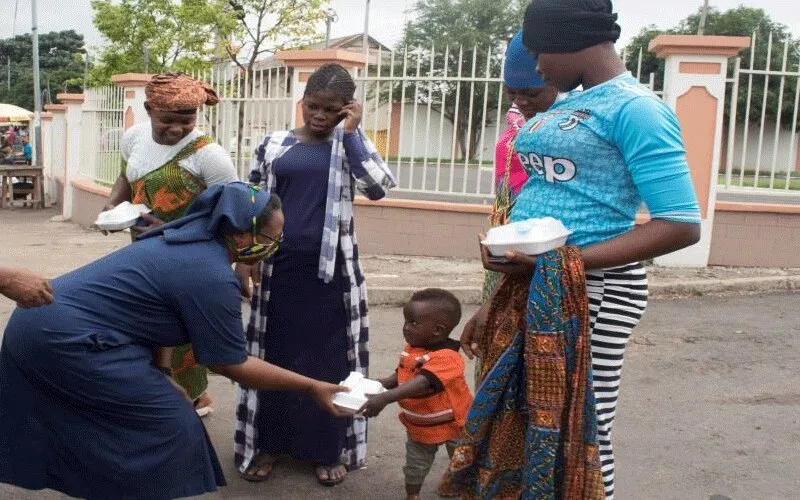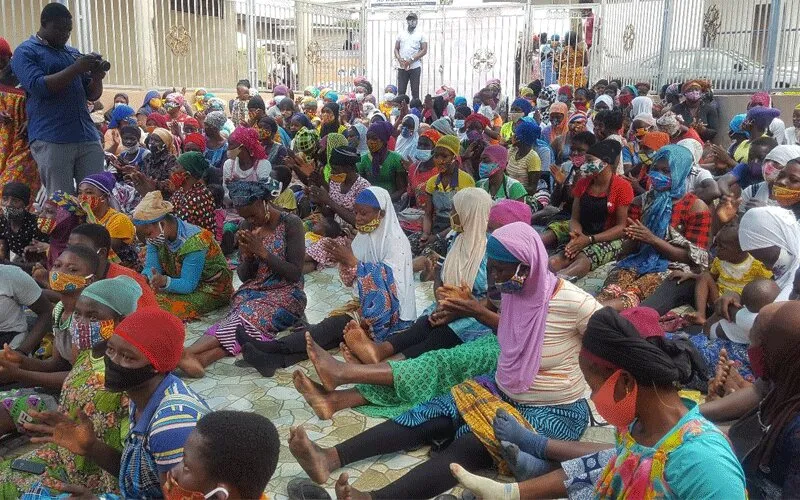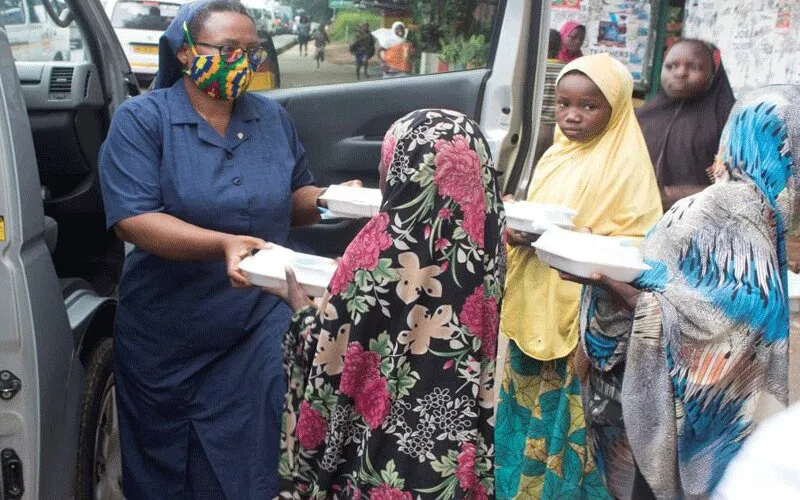
The organization has also assured the beneficiaries of sponsorship in training colleges once the government re-opens institutions of learning after the COVID-19 lockdown.
Families in the West African country have also been informed on the benefits of education to the children, the families and the community at large.
“Families were entreated to take responsibilities for the upbringing of their children and support the children to realize their potentials,” Sr. Olivia says in the report shared with ACI Africa.
She continues, “The team seized the opportunity to sensitize families on child streetism, trafficking, early child marriage, forced marriage, and advised parents to desist from such behavior, which violates the rights of the child and which is detrimental to the wellbeing of children.”
(Story continues below)

Safe-Child Advocacy (formerly, Street Children Project) also continues to reach out to other children on the streets, providing daily meals to hundreds of children on the streets in Ghana.
The Sisters of Daughters of Charity of St. Vincent de Paul who work tirelessly on the project have also created a COVID-19 free environment at the drop-in centers that now allow for safe distancing to prevent the spread of the virus.
Sr. Olivia notes that after the lifting of the lockdown restrictions, children from the streets trooped into the collection center in large numbers, creating the fear of the spread of the virus.

“We became alarmed as this was going to pose a health threat, as well as violating social distancing measures,” Sr. Olivia says, and adds, “We had been resolute in supporting government efforts to curb the spread of the Corona virus in Ghana. We did not want our Center to be the avenue to aggravate the situation of the pandemic in the country.”
The nun further says, “Until recently, we had just one canopy in the courtyard of our drop-in center, which could take a maximum of 50 persons with no social distancing. We watched with worry and fear as children gathered under the one canopy without observing proper social distancing.”
Unable to enforce COVID-19 restrictions at the drop-in center, the Sisters constructed extra canopies (roof like structures) in a bid to hold as many numbers of street children as possible in a safe manner.

“Today, children who come into our Center have access to a safe, hygienic environment for rest during the day,” Sr. Olivia says.
She adds, “The drop-in center has been equipped with wash-hand basins and soaps where children can practice hand washing and other personal hygiene to create a healthy environment for beneficiaries and service providers.”
Established in 2005 with a vision of ensuring that all children live, grow and are cared for within homes, Safe-Child Advocacy aims at addressing the issue of vulnerable children living on the streets of Kumasi, the capital city of Ghana’s Ashanti Region.
Agnes Aineah is a Kenyan journalist with a background in digital and newspaper reporting. She holds a Master of Arts in Digital Journalism from the Aga Khan University, Graduate School of Media and Communications and a Bachelor's Degree in Linguistics, Media and Communications from Kenya's Moi University. Agnes currently serves as a journalist for ACI Africa.















